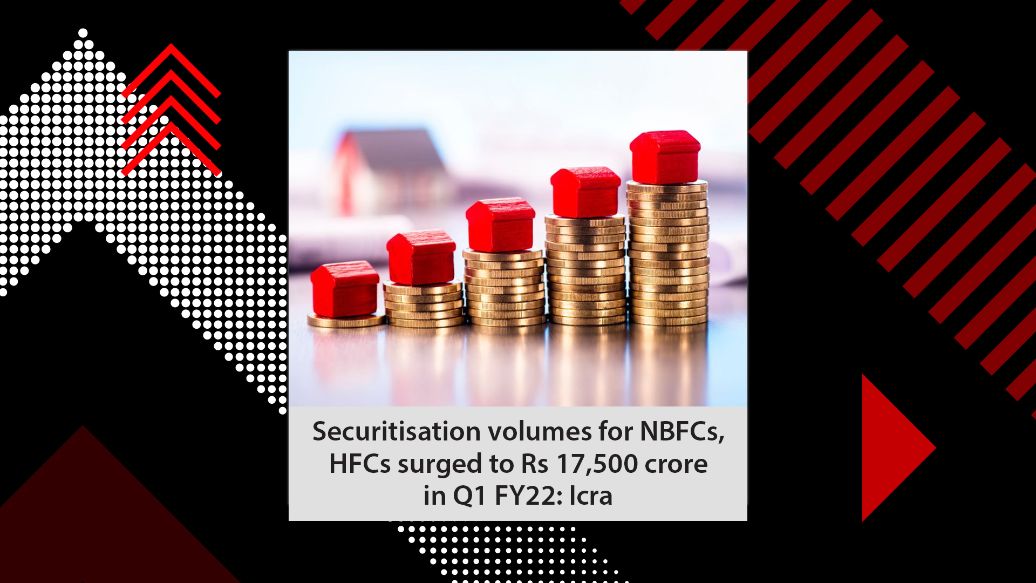Securitisation is the process of pooling and repackaging homogenous illiquid financial assets into marketable securities that can be sold to investors.
Despite the impact of the second wave of COVID-19, securitisation volumes by non-banking financial companies and housing finance companies surged 2.3 times to Rs 17,500 crore of their loan assets in the first quarter of 2021-22, according to a report.
During the first quarter of 2020-21, the volumes had significantly fallen to Rs 7,500 crore due to the pandemic and the resultant nationwide lockdown in March 2020, Icra Ratings said in a report released on Friday.
The agency expects securitisation volumes for NBFCs and HFCs in FY2022 could be more than Rs 1.2 lakh crore, of which the majority would be in H2 FY2022 if there is no resurgence of COVID infections in the country.
“Despite the onset of the second wave in April 2021, securitisation volumes saw robust Y-o-Y growth in Q1 FY2022. This was because the lockdowns during the current fiscal were localised and less stringent compared to the nationwide lockdown last year,” the agency’s Vice President and Group Head (structured finance ratings) Abhishek Dafria said.
There was gradual ease in lockdowns in June across most geographies and gradual improvement in collection efficiencies of NBFCs thereby gives investors the necessary comfort to participate in securitisation, he added.
Another factor that supported the volumes was that unlike Q1 FY2021, when the microfinance sector was almost absent from the securitisation market, the segment has been able to restrict the decline in collections and thus been able to find investor interest in the securitisation of its assets, Dafria said.
Securitisation is the process of pooling and repackaging homogenous illiquid financial assets into marketable securities that can be sold to investors.
Traditionally, securitisation through Direct Assignment (DA) transactions (bilateral assignment of a pool of retail loans from one entity to another) has accounted for about two-thirds of the total volume.
The balance one-third share is accounted by Pass-Through Certificate (PTC) transactions (loans are sold to an SPV which issues PTCs).
In Q1 FY2022, the volumes were almost equally distributed between DA and PTCs.
The reversal in the split between DA and PTCs can be attributed to the fact that PTC transactions have credit enhancement in form of subordination and credit collaterals unlike DA transactions, which do not have any credit enhancement, the agency said.
Icra Assistant Vice President and Sector Head Sachin Joglekar said that in Q1 FY2022, the agency downgraded ratings of only one PTC transaction due to weak collections.
The ratings of other PTC transactions have been reaffirmed or upgraded supported by a build-up of credit enhancement coupled with the expectation of improvement in collections in Q2 FY2022, he noted.
Source: PTI
(The story has been published from a wire feed without modifications to the text. Only the heading has been changed)
ALSO READ: Delhi Cooperative Housing Finance Corp Slashes Rate Of Interest On Home Loans




























